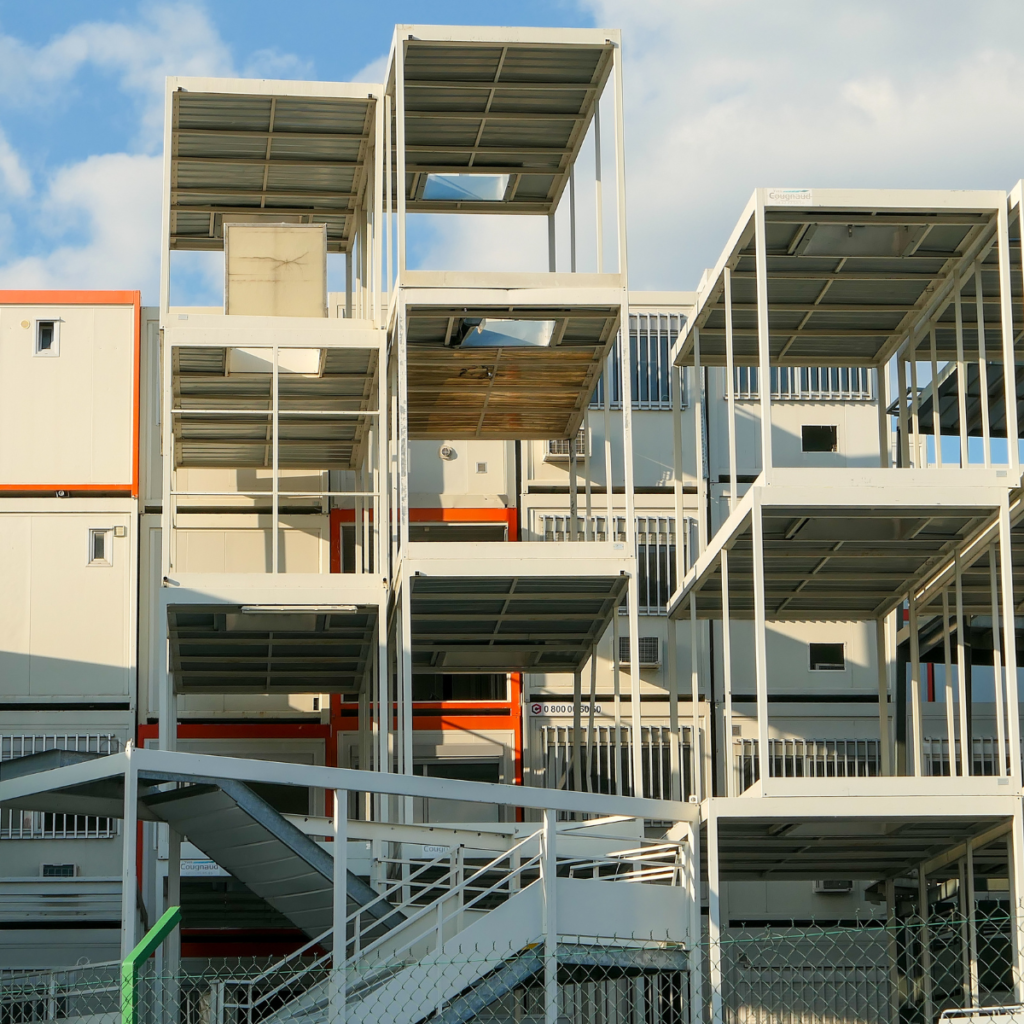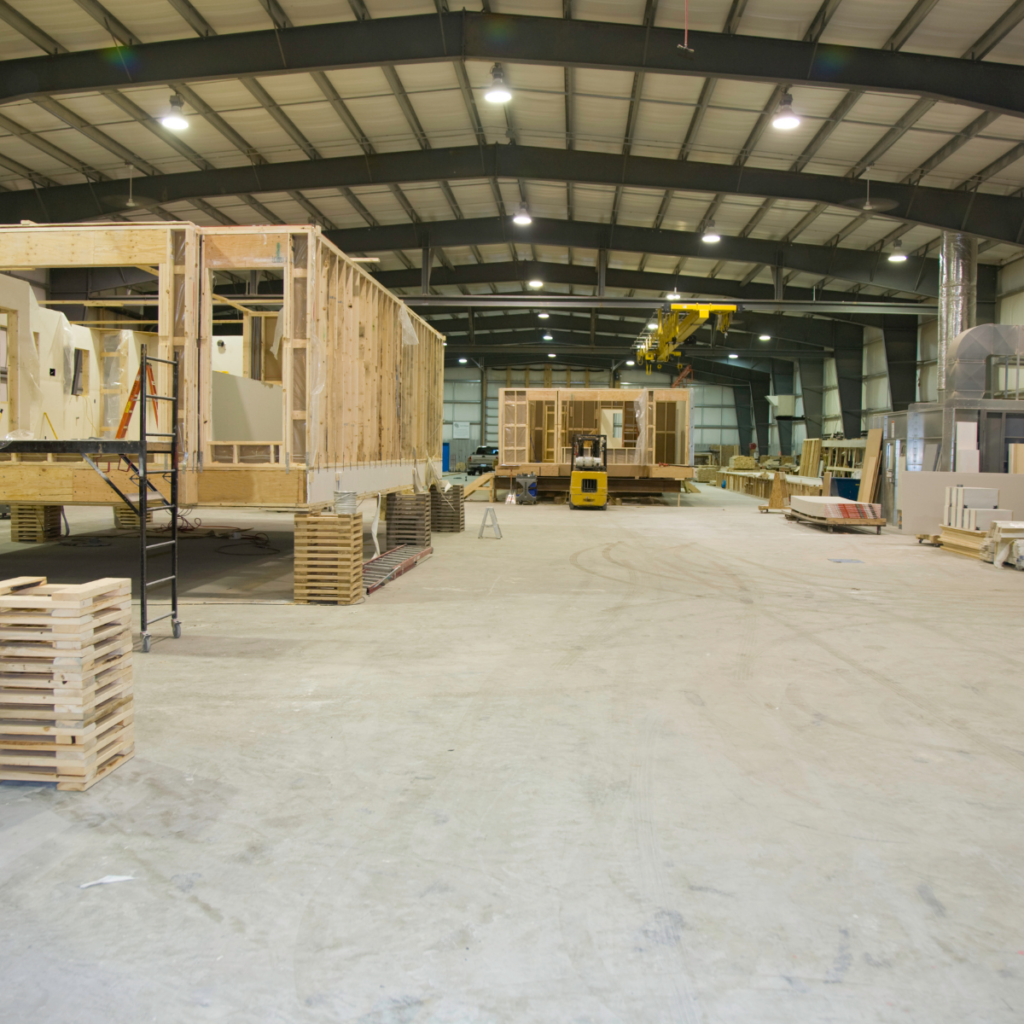A new wave of innovation is reshaping the way buildings are designed and erected in the construction realm. For facility managers, architects, engineers, business owners, school directors, and board members seeking efficient and environmentally friendly alternatives to traditional construction methods, modular building stands out as a compelling solution. This article delves into the eco-friendly advantages of modular construction, exploring how it saves time and contributes to a sustainable future.
Understanding Modular Construction
Modular construction, also known as prefabricated construction, involves the fabrication of building modules off-site in a controlled factory environment. These modules, which serve as pre-built sections of a structure, are then transported to the construction site for assembly. Unlike conventional construction methods that rely heavily on on-site labor and materials, modular construction streamlines the building process through off-site manufacturing.

Reducing Environmental Impact through Waste Reduction
One of the key eco-friendly benefits of modular construction is its ability to minimize waste generation. Traditional construction often results in significant waste due to over-ordering of materials, on-site cutting, and inefficiencies in resource utilization. In contrast, modular construction optimizes material usage by precisely fabricating building components in a factory setting. This controlled environment enables manufacturers to minimize waste and recycle materials efficiently, thereby reducing the environmental footprint of construction projects.
Energy Efficiency in Modular Buildings
Modular buildings are designed with energy efficiency in mind, incorporating features that help reduce energy consumption and minimize environmental impact. These buildings often boast superior insulation, high-performance windows, and energy-efficient heating, ventilation, and air conditioning (HVAC) systems. By prioritizing energy efficiency, modular construction aligns with sustainability goals and promotes responsible resource management.
Transportation Efficiency and Emissions Reduction
Another eco-friendly aspect of modular construction is its transportation efficiency. Prefabricated modules are transported to the construction site via trucks or shipping containers, minimizing the need for multiple deliveries of materials over time. This streamlined approach to transportation reduces fuel consumption and greenhouse gas emissions associated with construction activities, contributing to cleaner air and a healthier environment.
Promoting Reuse and Recyclability
Modular construction facilitates reuse and recyclability, further enhancing its eco-friendly credentials. Unlike traditional buildings, which are often demolished and discarded at the end of their lifecycle, modular structures can be disassembled and repurposed relatively easily. Building modules can be relocated to new sites or recycled to reclaim valuable materials, extending their lifespan and minimizing waste generation. This circular approach to construction promotes resource conservation and reduces the demand for virgin materials.
Faster Construction Time, Reduced Disruption
In addition to its environmental benefits, modular construction offers practical advantages such as faster construction time and reduced disruption to surrounding areas. The off-site fabrication of building modules allows for concurrent site preparation and manufacturing, accelerating the construction timeline. This rapid deployment is particularly beneficial for time-sensitive projects such as emergency shelters, temporary facilities, or school expansions. Modular construction minimizes its environmental footprint and enhances overall project efficiency by minimizing construction duration and onsite disturbances.

Embracing Sustainable Materials
Many modular construction companies prioritize using sustainable materials in their building modules, further bolstering the eco-friendly appeal of this construction method. From recycled steel and reclaimed wood to low-impact construction materials, these sustainable choices help minimize environmental impact while meeting performance and durability requirements. By selecting eco-friendly materials, stakeholders can contribute to a greener built environment and support the transition to sustainable construction practices.
So, is modular construction eco-friendly?
Yes. Modular construction is a compelling solution for facility managers, architects, engineers, business owners, school directors, and board members seeking efficient and eco-friendly alternatives to conventional construction methods. Modular construction embodies the principles of environmental stewardship and resource conservation by reducing waste, promoting energy efficiency, optimizing transportation, facilitating reuse and recyclability, accelerating construction timelines, and embracing sustainable materials. As the demand for sustainable building solutions continues to grow, modular construction stands poised to play a pivotal role in shaping a greener and more resilient future.


